Ankara blast: Turkey accuses Syria Kurds of deadly attack
- Published
Eyewitness Natalie Galley: "I heard a huge explosion"
Turkey's president says there is evidence to prove the Kurdish YPG militia based in Syria were behind Wednesday's deadly bombing in Ankara.
President Recep Tayyip Erdogan said they had been supported by the outlawed Kurdistan Workers Party (PKK) in Turkey. Both groups deny involvement.
He also said there had been 14 arrests over the attack on the military convoy.
Earlier on Thursday, another convoy in south-east Turkey was hit by a bomb, killing at least six troops.
Mourning Ankara's dead
Wednesday's bombing in Ankara targeted the convoy as it passed close to key government buildings. Twenty-eight people - at least 20 of them military personnel - were killed and 61 injured.
Tearful families gathered outside a forensic medical office in the Turkish capital, waiting for the bodies of their loved ones to be handed over for burial, the BBC's Yolande Knell reported from the scene.
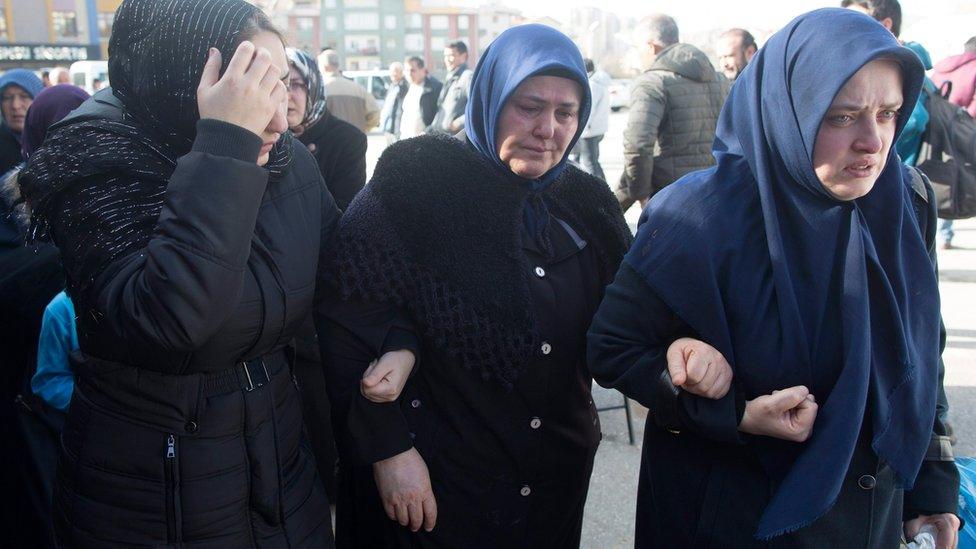
Funerals of those killed in Ankara will take place on Thursday
Earlier, Prime Minister Ahmet Davutoglu named the Ankara bomber as Salih Necar, a Syrian national and member of the Syrian Kurdish People's Protection Units (YPG).
"A direct link between the attack and the YPG has been established," he said, adding that PKK militants inside Turkey provided the YPG logistical support.
The political arm of the YPG "completely refuted" the claims of its involvement, saying Turkey is not its enemy. A senior member of the PKK said he did not know who was responsible, Reuters news agency reports.
But President Erdogan, speaking on live television, said: "Even if the leaders of YPG or PKK deny being involved in the attack, there is evidence proving they were behind it."
He said he hoped that this would convince Turkey's allies of the link between the two groups.
The PKK, which has been fighting for Kurdish self-determination since 1984, is considered a terrorist organisation by Turkey and its Western allies.
Turkey has also designated the YPG a terrorist group, but its allies, including the United States, back the YPG in its fight against so-called Islamic State (IS).
Turkish PM Ahmet Davutoglu: "A direct link between the attack and the YPG has been established"

Analysis: Selin Girit, BBC News, Istanbul
Turkey feels under increasing pressure. The ceasefire with the PKK collapsed in July last year, prompting months of military operations, curfews, attacks and hundreds of dead and injured in the south-east of the country.
Ankara also seems to be getting increasingly involved in the Syrian conflict. In the last week Turkish artilleries have been shelling YPG targets across the border.
There have been three suicide bombings in three cities, killing almost 150 people, in the last seven months. The latest attacks, in Ankara and Diyarbakir, are adding to the already alarming mood.
President Erdogan has vowed to retaliate, but many people fear the country could actually be dragged into a spiral of violence.
One young woman, posting on Facebook, said: "After such a bloody day, we will again be taking buses or tube and will try to go to work in one piece. We will try to figure out if there is a suspicious package, if there is a suspicious person. God help us all!!"
Her feelings are shared by many living across Turkey. "If such an attack could take place in the heart of Ankara, at such proximity to the military headquarters and the parliament building, how are we supposed to feel safe?" people ask.


Despite Turkey's claims, Washington said it had not yet determined who was behind the attack in Ankara.
Ben Rhodes, US Deputy National Security Adviser, added that the US government had made clear to the YPG that Turkey was an important ally and that defeating IS was their mutual focus.
Fresh attack on Turkish military
Within hours of the Ankara blast, reports emerged of a similar attack on a military convoy in the mainly Kurdish south-east of Turkey.
The army said six soldiers were killed and another was badly wounded after the convoy struck an improvised explosive device in the province of Diyarbakir on Thursday morning. The army blamed the PKK for the attack.
Last month, at least six people died in Diyarbakir when a car bomb struck a police headquarters. Authorities blamed PKK fighters for the explosion.
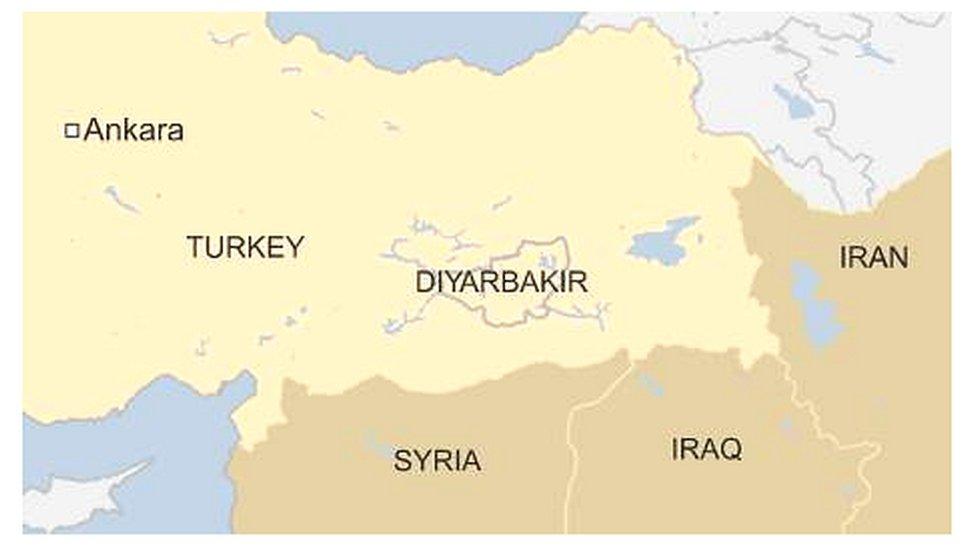
Turkish response
Turkey has been targeting some Kurdish militia groups in both Syria and Iraq for some time now.
But the military said it carried out targeted strikes overnight on around 70 PKK militants, some of them senior commanders, based in the Haftanin region of northern Iraq.
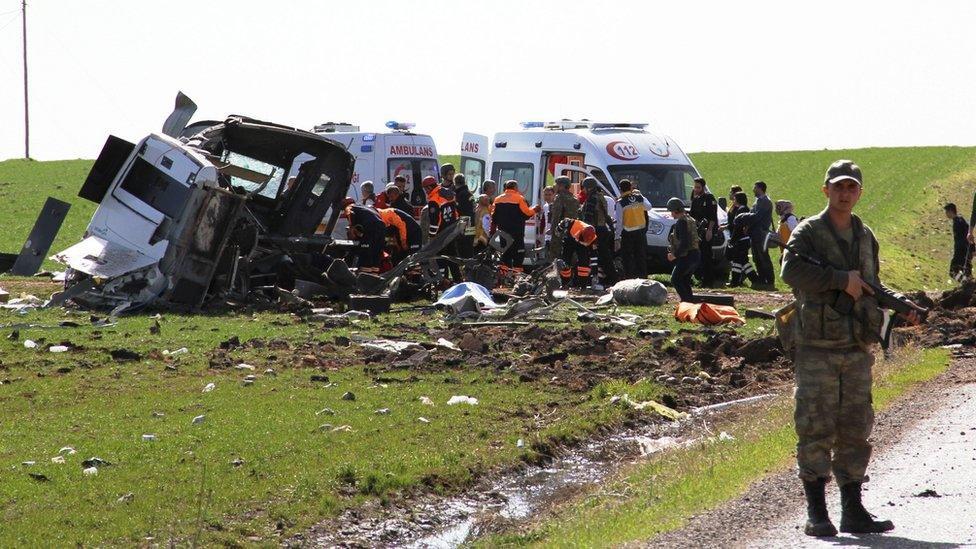
A convoy was searching for mines when it was hit, the army said
Tensions have steadily increased between Turkey and the PKK since a two-and-a-half year long ceasefire ended last July.
Late on Thursday, Turkish artillery also struck YPG positions in northern Syria, reports said.
Turkey has repeatedly shelled YPG targets in recent days, in response to the insurgents' advance in northern Syria close to its border.
- Published17 February 2016
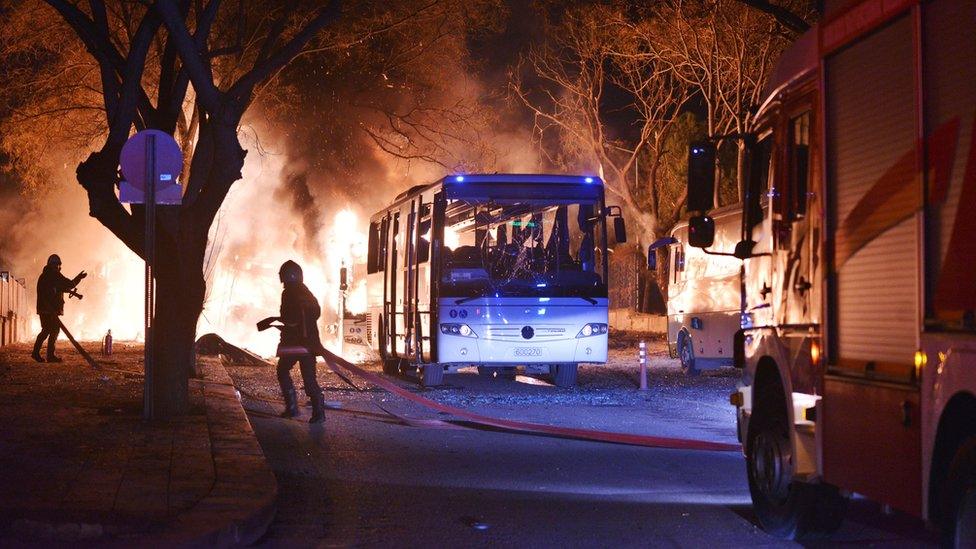
- Published17 October 2015
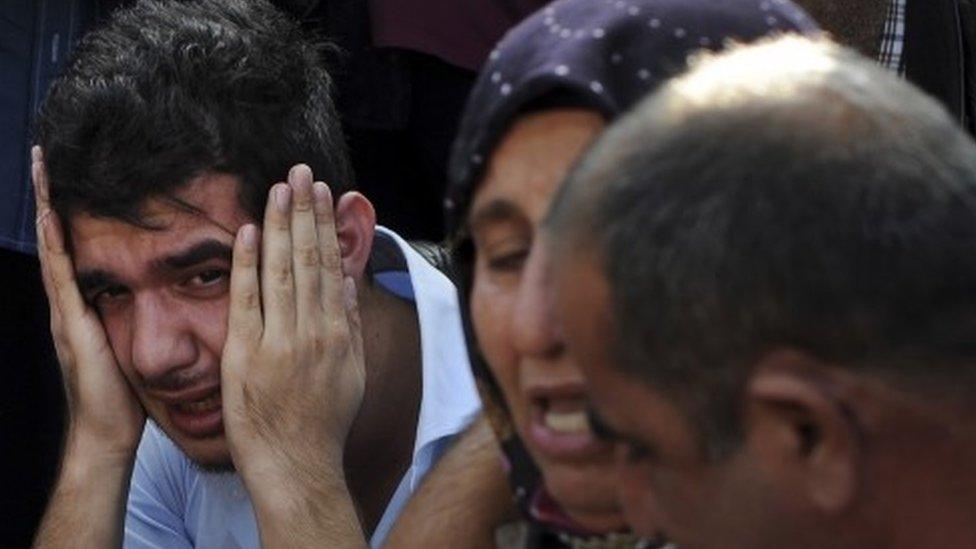
- Published17 February 2016
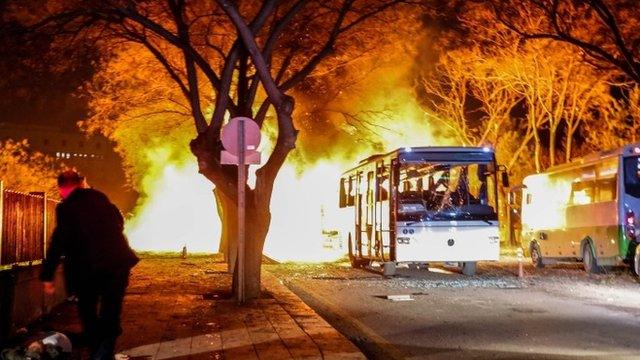
- Published22 August 2023
